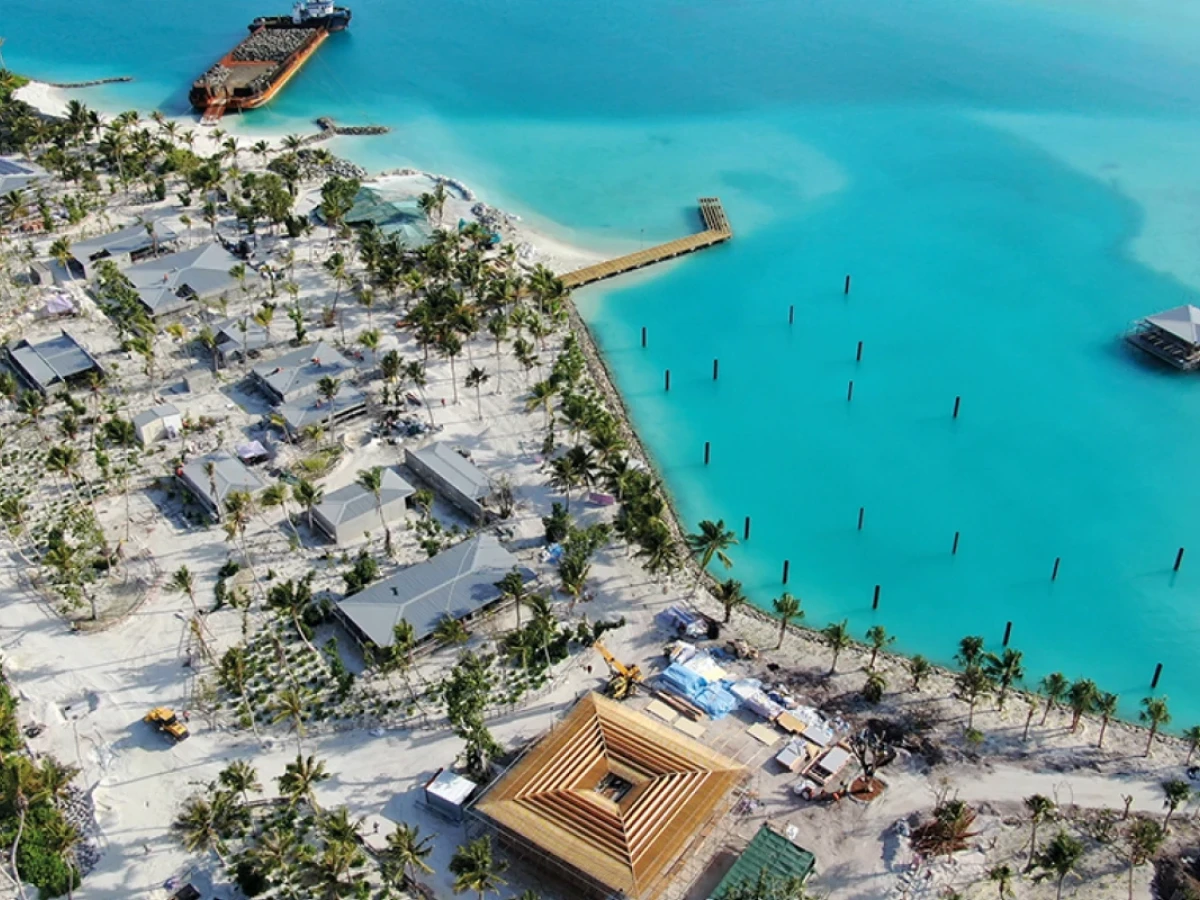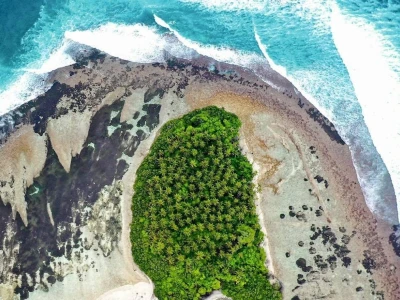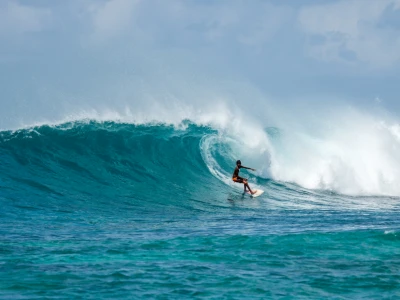
Extending resort built-up area to 50%: Positive change?
By
Ahmed Naif
Tourism ministry on Tuesday allowed developers to increase the built-up area of resorts from the existing 30% to 50% of the total land area of the island.
What kind of impact will this change have on tourism?
'Pivotal change for new developments'
Tourism minister Abdulla Mausoom told Atoll Times on Wednesday that it was an overdue change, The reason, he said, is that the concept of tourism in the Maldives has changed drastically and unlike in the past, a large area of the island is needed to develop all the facilities required for a resort.
Larger facilities now need to be developed in resorts. That's why we're giving developers the leeway to develop the multi-million dollar product they want.
According to the minister, the size of guest rooms have now increased significantly compared to a decade back. There was a need to increase the built-up area of the island, he said.
"The size of the bathroom of a modern day tourist villa alone will be equal to that of older tourist rooms. Rooms have become villas now, and the footprint of the room is bigger now. Wealthy tourists come and spend their entire holiday in their room area," Mausoom said.
"Larger facilities now need to be developed in resorts. That's why we're giving developers the leeway to develop the multi-million dollar product they want."
The concern is that resort islands may lose their greenery and the world-famous natural beauty of country. There are also those who believe that there is a possibility of congestion and loss of the unique aspects of the Maldives' tourism industry.
Their only goal is to expand the business without any concern or worry, like a plane that keeps climbing up and up. They don't see the value of the existing business. The sole idea is to make maximum profits.
One of the main concerns of environmental activists is that it could once again damage the environment of the country, which is facing imminent threats of climate change.
"We are building resorts by changing the natural scape of the island. We do need to build resorts, but our resort construction methods are based on environmentally destructive models. Then there are legal amendments and regulations to increase construction area or build even taller buildings," environmental activist Humaidha Abdul Ghafoor said.
"Their business mindset is that they need to constantly expand their scope, instead of nurturing a sustainable business."
Her biggest fear is that Maldives' tourism is deviating away from its natural characteristics day by day. Humaidha said that as part of the business objective to keep on maximising profits, construction of big city hotels in inhabited islands and the congestion is a great injustice to the future generations.
"Their only goal is to expand the business without any concern or worry, like a plane that keeps climbing up and up. They don't see the value of the existing business. The sole idea is to make maximum profits," she said.
'Owners won't destroy their biggest asset'
Ahmed Nazeer, Secretary General of Maldives Association of Tourism Industry (MATI), an organisation that represents resort owners and operators, said that destroying the natural environment of an island where a resort is built is not something that owners who invest millions of dollars in such projects would do.
He said tourists are coming to the Maldives to experience the natural beauty of the country, adding that an investor who put millions of dollars in an island leased for a long period will preserve the island's natural environment and protect it. According to Nazeer, no one else would consider island’s well-being more than the owner.
"Rresort owner knows the reason why tourists come here. They don't want to take away the entire green cover of the island, destroy the island and build a resort like that. That's why most resorts are already greener than inhabited islands," Nazeer said.
Nazeer said that despite investors paying a big sum to the government, the built-up area of a resort island leased for 99 years was kept at 30% based on the concept of resorts built decades ago. He, however, added that while developing resorts for the current concept, the built-up area should be bigger due to factors such as the large number of restaurants that are required now. He added that the cost of building a resort has also increased and a larger area is needed to develop high-end resorts.
"The built-up area includes overwater villas. In the newer concepts, rooms are bigger, privacy is high, and we need a lot of space to offer a modern-day tourism experience. Even with these things, concepts are put forward in such a way that we don't lose the greenery. We will not build a single resort with the intention of losing our greenery," Nazeer said.
"Tourism investors have a holistic approach that benefits the entire country."
Rresort owner knows the reason why tourists come here. They don't want to take away the entire green cover of the island, destroy the island and build a resort like that. That's why most resorts are already greener than inhabited islands.
Tourism minister Mausoom also agreed with Nazeer. He believes that even if the allowed built-up area is 50%, most developers will not build on all of the 50%.
"The island itself is a huge asset for the investor. It's something that they can add value to. So, the investor will not destroy their own asset. Once again, when he's going to sell, he can sell the place too only if the natural beauty and resources have been retained there. So, the lessee, more than the government, will look after it," Mausoom said.
He said that when tourism first started, islands were leased only for five years. As the island was not an asset at the time, governments had to take steps to protect the island. Mausoom, however, believes that the threat is no longer there as the lease period has been extended to 99 years.
"If it was leased for five years, the investor would look to maximise their earnings in whatever way possible during that short period. That's why the government was forced to protect the island at that time," Mausoom said.
'Revolutionary change'
According to Nazeer of MATI, the organisation has been urging the government to extend the built-up area resort islands. Stating that the change is a positive one, Nazeer said that the change will attract a lot of investors to the Maldives. Nazeer believes that this will help develop resorts in the Maldives to suit the changing tourism concepts.
Mausoom described the change as the beginning of a revolution. Mausoom, like Nazeer, argues that the change has opened a new door for investors to develop modern and new tourism concepts.
"This is the beginning of a new type of resorts that have privacy, can boast high-quality villas within natural environments," the minister said.
"The principles of modern day tourism are nature, privacy and luxury. That's how we opened up to investors to build resorts in new concepts in the Maldives. I would say that this will bring about a revolution in the years to come.




